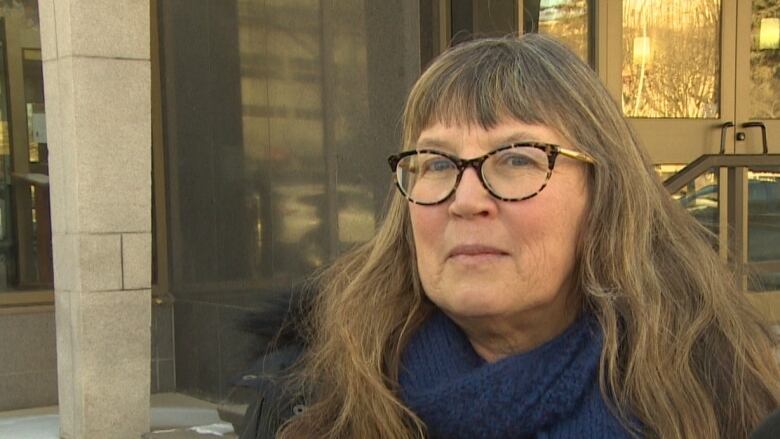Province hands over oil-spill information to professor 2 years after request
Patricia Elliott has dropped her court case against the Saskatchewan government

Patricia Elliott has received more than 4,000 pages of internal documents related to the 2016 Husky Oil Spill two years after she made the request to Saskatchewan's Ministry of Environment.
"In the end, the ministry went through what would have been the normal process," she said. "They should have done that right at the beginning the day I submitted my application rather than a blanket refusal," Elliott said.
Elliott,a journalist and professor with the University of Regina, is researching oil and gas regulationsin Saskatchewan.
In 2016,225,000 litres of diluted heavy oil leaked from a Husky pipeline near Maidstone, Saskatchewan.
About 40 per cent of the leaked crude made it into the river, causing an oil plume that flowed hundreds of kilometres downstream and forced the cities of North Battleford, Prince Albert and Melfort to shut off their water intakes for almost two months.
Part of the information requested byElliott concerned communication between government officials about summer clean-up activities and lingering impacts of the oil spill in 2017.
Theprovince denied her request, so she went to Saskatchewan's privacy commissioner for review. Ronald Kruzeniski ruled in her favour and recommended the province release the information.
The province did not act on the recommendation. Eight months later, the province provided the information just before the matter was to be heard in court.
Calls for provincial reform
Elliott used her "victory" to point to her colleague, Professor Emily Eaton, who is also involved in legal action in a bid to get access to information. However, she's trying to get information from the University of Regina.
Elliott said she's hopeful that the outcome of her caseand the attention on Eaton's will lead to legislative reform. In other jurisdictions, like Alberta, privacy commissioners have order-making power.
"Unless the government is compelled to provide information under the legislation they will avoid it, and for the most part they can get away with it," she said. "I think when they make those refusals, they really do count on citizens thinking 'well, I can't afford to pursue this so it's over.' "
She encouraged people in pursuit of information not to give up, but acknowledged the process if costly. Elliott has yet to see her final bill, but expects $5,000 raised for the effort to go toward the legal services.
In a statement, a government spokesperson said there are no current plans to introduce legislation to expand the authority of the privacy commissioner.
Prof. still trying to learn source of oil research money
Eatonrequested information related to fossil fuel research being conducted at the University between 2006 and 2017. She wanted to know who wasproviding money for research, what groups and research projects were getting the money, and the amount given.

The university cited theFreedom of Information and Privacy Act (FOIP) as the reason why it would only release the title of the research projects and the dollar amounts given not who is giving the money.
Eaton previously said this information is critical to her research. She also went to the privacy commissioner for review.Like in Elliott's case, Kruzeniski recommended the release of the records, but the university has not changed its position.
Eaton appealed the university's decision with the Court of Queen's Benchandthe matter is scheduled forFebruary 26, 2020.
On Thursday, a spokesperson for the university said in an email that releasing the informationEaton wants "could and would set a potentially dangerous precedent for future access to information requests that might interfere with the scholarship and research of our academic staff members."
Eaton said theuniversity's stance in this matter goes againstacademic traditions of transparency.
"It's appearing like they have something serious to hide and that's never a good thing."
Eaton said that she is "dismayed that the University has spent so many resources fighting the recommendations of the privacy commissioner."
The university spokesperson declined to say how much money the university has invested into this matter.
"The university does not take the expenditures associated with this case lightly. However, as an institution, we are committed to preserving the integrity of our research and our researchers," they said.












_(720p).jpg)


 OFFICIAL HD MUSIC VIDEO.jpg)
.jpg)



























































































